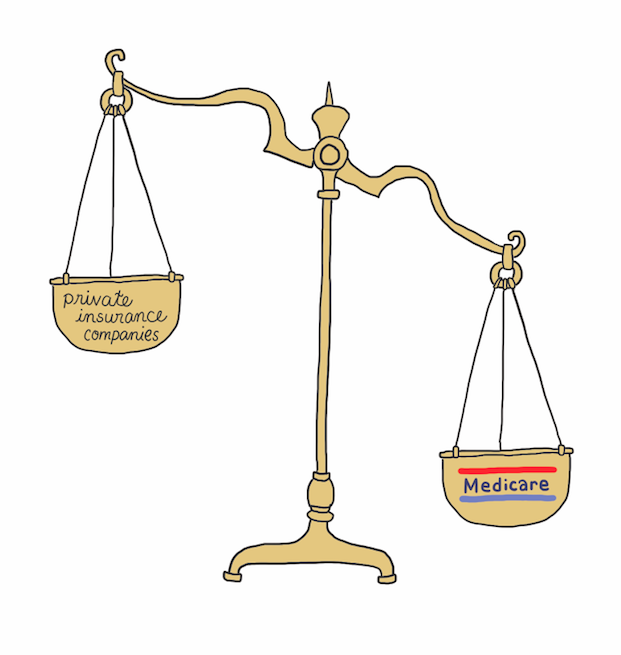A Progressive Case Against Medicare for All
October 16, 2019
Advocacy for “Medicare for All” could spell trouble for Democrats, regardless of whether Medicare for All is a good policy prescription for addressing the failures of the U.S. health care system. Beyond the difficulties of implementing Medicare for All in the U.S., it is important to consider the ability of Democrats to win back the White House in 2020 if they want to implement any progressive changes to the health care system at all. This is important for progressives even if a Bernie Sanders-style single-payer system is not what Democrats ultimately push for.
A common statistic thrown around by Medicare for All supporters is that 70% of Americans support it. While this is true when asking about Medicare for All generally, the idea fares far worse when specific policy proposals laid out by politicians like Bernie Sanders are polled.
When respondents were questioned about whether or not they supported Medicare for All as a replacement to private insurance companies (as Sanders has advocated for the elimination of the private health care industry), support dropped to 41%. Even worse, when asked specifically about whether or not private health care should be “abolished,” only 13% of Americans supported the proposal.
As someone who wishes for President Donald Trump to be ousted from office in 2021, the idea that Democrats could be subject to attacks from Republicans over a health care plan that eliminates private insurance worries me. These attacks will resonate with Americans who fear government mismanagement of health care.
We only need to look back a few years to see how Republicans can campaign against Democratic health care proposals. While in office, President Barack Obama apologized to Americans who lost their health care plans following the implementation of the Affordable Care Act (ACA) because their plans did not meet new regulatory standards. Obama had promised Americans that under the ACA there should be no fear of losing their health care plans or doctors. Americans who felt Obama lied to them about his health care proposal must be convinced to re-elect Democrats. They will not be convinced if Democrats start the conversation about health care by telling Americans they will lose their private insurance.
This will be made much more difficult if Republicans have the opportunity to campaign against a Democratic proposal to abolish private health insurance. Republicans successfully campaigned off the controversy surrounding the ACA. The infamous “repeal and replace” slogan was crafted by Republican senators, including Sen. Mitch McConnell, the day before the ACA was signed into law.
This rallying Republican cry against the ACA carried the party into the 2010 midterms, allowing them to win majorities in both the House and the Senate. A similar campaign against the removal of private health insurance could be devastating for a Democratic presidential candidate trying to defeat Trump.
A more successful presidential campaign should be run on a more moderate healthcare proposal, such as that of Pete Buttigieg. Buttigieg has offered a path forward to enacting progressive change to the American health care system by supporting a plan that would allow Americans to buy into Medicare just as they would buy into a private plan, while also allowing insurance companies to exist.
He defends his plan against attacks by other progressives who claim that merely creating a public option does not do enough to combat private insurance companies by explaining that “if people like me are right, then the public alternative is going to be more comprehensive and more affordable than corporate options.” Buttigieg is correct; if Medicare for All truly is the best way forward, it should be able to outcompete private health care plans.
If it does, public health care will become the norm in the U.S. not because the government mandated it, but because it succeeded in the free market. The failure of private health care companies to compete with a public option would make them a nonissue, effectively implementing a Medicare for All system without writing private insurers out of existence by law.
Ultimately, regardless of wherever you fall in the health care debate, if you wish for Democrats to retake the White House in 2020 it is important to acknowledge the electoral realities the party faces. A Democratic presidential nominee cannot win by having to explain to Americans why they believe taking away their private health care plan is the best way forward. To achieve the progressive changes we desire, we should advocate for more modest policy proposals that Americans actually support which will eventually lead to more radical progressive change.











